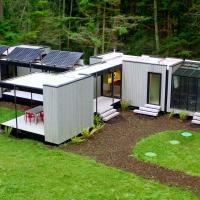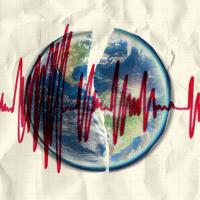Humans have always demonstrated a capacity for foresight. That’s why early farmers were able to think past the immediate reward of their next meal and plant seeds that would yield a greater reward in the future. It’s also why U.S. National Parks have been protected over the span of generations, so everyone can continue to enjoy them.
While we all have this ability, the modernization of society has seemed to create a culture which reinforces short-term thinking. Social media accounts that allow us to receive instant gratification for very little effort are just one example.
Bina Venkataraman believes that the stark consequence of this sort of mentality on a grander scale is a negative impact on global sustainability. Her book, The Optimist’s Telescope, describes how humans have moved away from their innate ability of foresight and that it’s hindering progress.
Is Humanity Becoming More Shortsighted?
Bina Venkataraman, the director of global policy initiatives at the Broad Institute of Harvard & MIT and former senior advisor for climate change innovation under President Barack Obama, believes that modern society’s shortsightedness is the root of many avoidable catastrophes.
Venkataraman explains the concept as it relates to economic sustainability, “Sometimes immediate results are actually at odds with investing in the future. A company could boost its quarterly earnings by slashing investment in research and development or slashing investment in human capital. That’s taking away from the future in order to meet an immediate objective.”
Another example is when governments allow fisheries and farmlands to become depleted to serve immediate supply needs, rather than enforcing conservation efforts to ensure food sustainability for future generations. This focus on the short-term counteracts long-term success.
The Optimist’s Telescope details how disastrous this shortsightedness could become for global sustainability if it continues. In her book, Venkataraman questions whether we’ll be remembered by our descendents as a generation that preserved or destroyed their inheritance.
Humanity is in a unique position in the span of world history. “We’re living longer than our ancestors. We’re inventing technologies like artificial intelligence and gene editing. We’re engineering the future climate of the world and so, in this moment we really need to think ahead, more than perhaps any generation has before, to thrive as human beings,” says Venkataraman.
While it’s not easy to approach the prospect of future crises, Venkataraman chooses to face the future with optimism. To her, “optimism” means recognizing faults, anticipating their consequences, and addressing them with forward-thinking solutions that support global sustainability.
As she states, “I think of ‘optimism’ as being willing to imagine the world that you want and making choices to bring about that future.”
The Importance of Foresight to Global Sustainability
Just as sailors used telescopes to look out over expansive waters and navigate the open seas, The Optimist’s Telescope is a metaphor for looking across time to anticipate the future. In the book, Venkataraman discusses this process as “the protection of shared heirlooms.”
Heirlooms are things people inherit from their ancestors and then preserve for their descendents. They represent a link between the past, present, and future.
One example comes from the year 869, when the Jogan earthquake and a subsequent tsunami struck in Japan. A shrine commemorating the disastrous phenomenon was erected and protected for over a thousand years.
Familiar with the shrine that memorialized this disastrous event, an engineer named Yanosuke Hirai decided to construct the Onagawa power station‘s reactor buildings at a higher elevation.
In March of 2011, another deadly earthquake and tsunami struck Japan. This time, it caused a disastrous accident at a power plant near Onagawa, that was built at a much lower elevation. The disaster left more than 20,000 people dead or missing.
The official investigation of what happened at the Fukushima Daiichi Nuclear Power Plant stated that the accident “cannot be regarded as a natural disaster. It was a profoundly manmade disaster- that could and should have been foreseen and prevented.”
Sixty-kilometers closer to the epicenter of the 2011 earthquake, the Onagawa power station managed to avoid disaster and even served as a refuge for those fleeing the area. This was all thanks to Hirai’s forward-thinking decision making, and of course, a shared heirloom which had been preserved by his ancestors.
When considering the aftermath of the COVID-19 pandemic, Venkataraman questions what information was neglected which could have lessened the outbreak’s devastating impact. It also makes her think forward to what we all stand to gain from the experience.
“We need to get more creative about how we respond to threats, how we measure and reflect our progress… If we want the lessons of this time to be carried to the future, we need an arsenal of tools and insights that transcend the present,” Venkataraman said.
There are many lessons to be learned from this pandemic, so long as we are able to preserve them for future generations and envision their purpose in a sustainable future. Amid such devastating times, Venkataraman’s form of optimism serves to redetermine our place in history.
We have inherited this earth from our ancestors. It’s now our job to get creative about working toward solutions that promote global sustainability. If we want our generation to be remembered positively we need to begin imagining the world we want and creating that future.
For more interesting news about the people and ideas that are changing our world, subscribe to Freethink.


